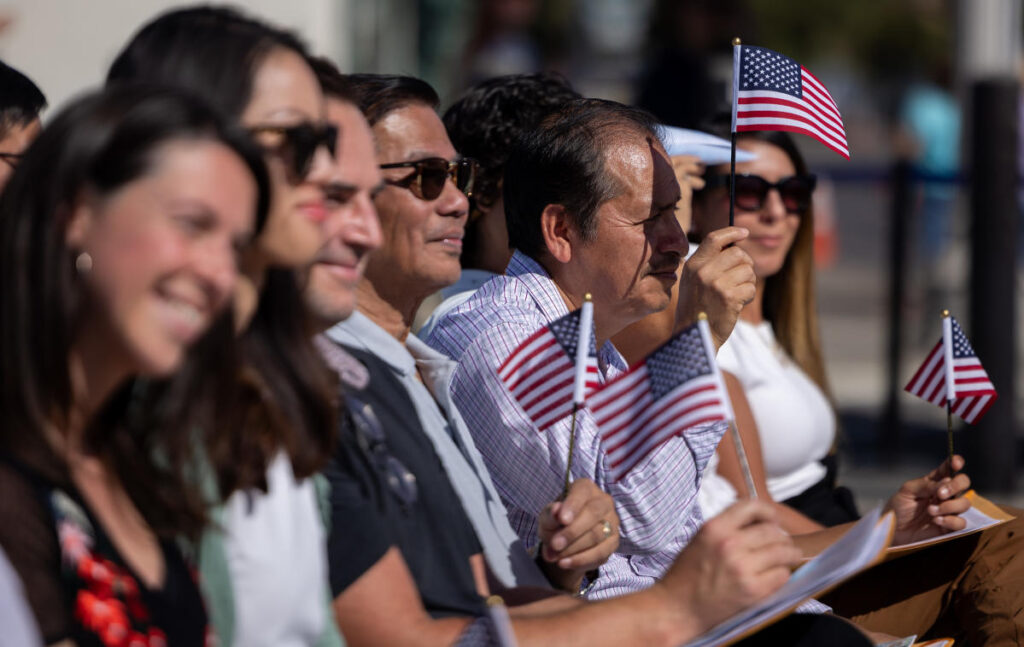According to a recent survey conducted by Echelon Insights for the Economic Innovation Group (EIG), a majority of American workers express satisfaction with their jobs. Despite this overall satisfaction, concerns regarding the cost of living and the demand for higher salaries remain significant for many. The survey, which gathered insights from 1,516 respondents between September 6 and September 11, revealed that if workers could change one aspect of their jobs, it would be to receive more pay (55%). Conversely, if they could alter something about the economy, a significant portion (45%) would choose to address the overall cost of living. Despite an overall positive disposition towards job security and satisfaction, workers appear to grapple with rising prices and a lack of confidence in their ability to secure comparable employment should they decide to seek new opportunities.
The data revealed that 71% of respondents are either somewhat satisfied or very satisfied with their current roles, while only 15% reported dissatisfaction. John Lettieri, CEO of EIG, noted that this level of job satisfaction aligns with historical trends, as American workers have consistently self-reported high satisfaction rates over the past few decades. He described it as somewhat counterintuitive, considering the economic and social upheaval experienced in recent years. Although current economic conditions are described as “worker-friendly,” with rising wages and low unemployment rates contributing to a sense of security for many workers, the “quits rate” has diminished, indicating fewer people are leaving their jobs voluntarily, which further reflects a climate of contentment.
Nevertheless, the desire for higher wages persists as a priority for the workforce. Post-pandemic, wages have generally outpaced inflation, but there are variances based on family size and personal financial circumstances. Despite discussions around the importance of benefits such as childcare and healthcare, the survey results indicate that when workers have the opportunity to express their most significant need, increased pay remains the top priority. Lettieri emphasizes the directness of the workers’ requests, highlighting a clear sentiment: “Just show me the money,” indicating a primary focus on compensation rather than supplementary benefits.
In addition to wage concerns, anxiety surrounding the cost of living has increased among American workers. The EIG survey identified that 24% of respondents cited product and service costs as their most significant stress, while 21% were most worried about housing expenses. Current mortgage rates have risen to 6.72%, with median home prices at $404,500 and median rental costs around $1,634, making homeownership less attractive as only 30% of Americans believe it is a good time to buy a house. Interestingly, political affiliations appear to play a role in perceived financial stress, as a higher percentage of Kamala Harris voters (24%) identified housing costs as a primary concern compared to Donald Trump voters (17%).
The survey outcomes also revealed perceived political alignment in terms of which party better represents worker interests. Among uneducated voters, 36% felt the Democratic Party was more supportive of their needs, compared to 33% for the Republican Party. Among those with a college education, the split was even more pronounced, with 44% favoring Democrats over 29% for Republicans. This political divide highlights a broader competitive landscape between the two parties, with workers increasingly observing and aligning with the party they believe is more attuned to their interests, particularly concerning economic wellbeing.
In summary, the EIG survey underscores that while job satisfaction levels among American workers remain high, they are increasingly concerned about wage levels and cost of living realities, particularly in urban areas where housing prices have escalated. Economic data reflects a complex backdrop where rising wages have not entirely eased financial anxieties, particularly regarding essential needs. The political implications also emerge, indicating a potential shift in worker alignment with the Democratic or Republican Parties based on perceived economic support. As the economy continues to evolve, addressing these concerns will be crucial for both policy makers and employers alike.

